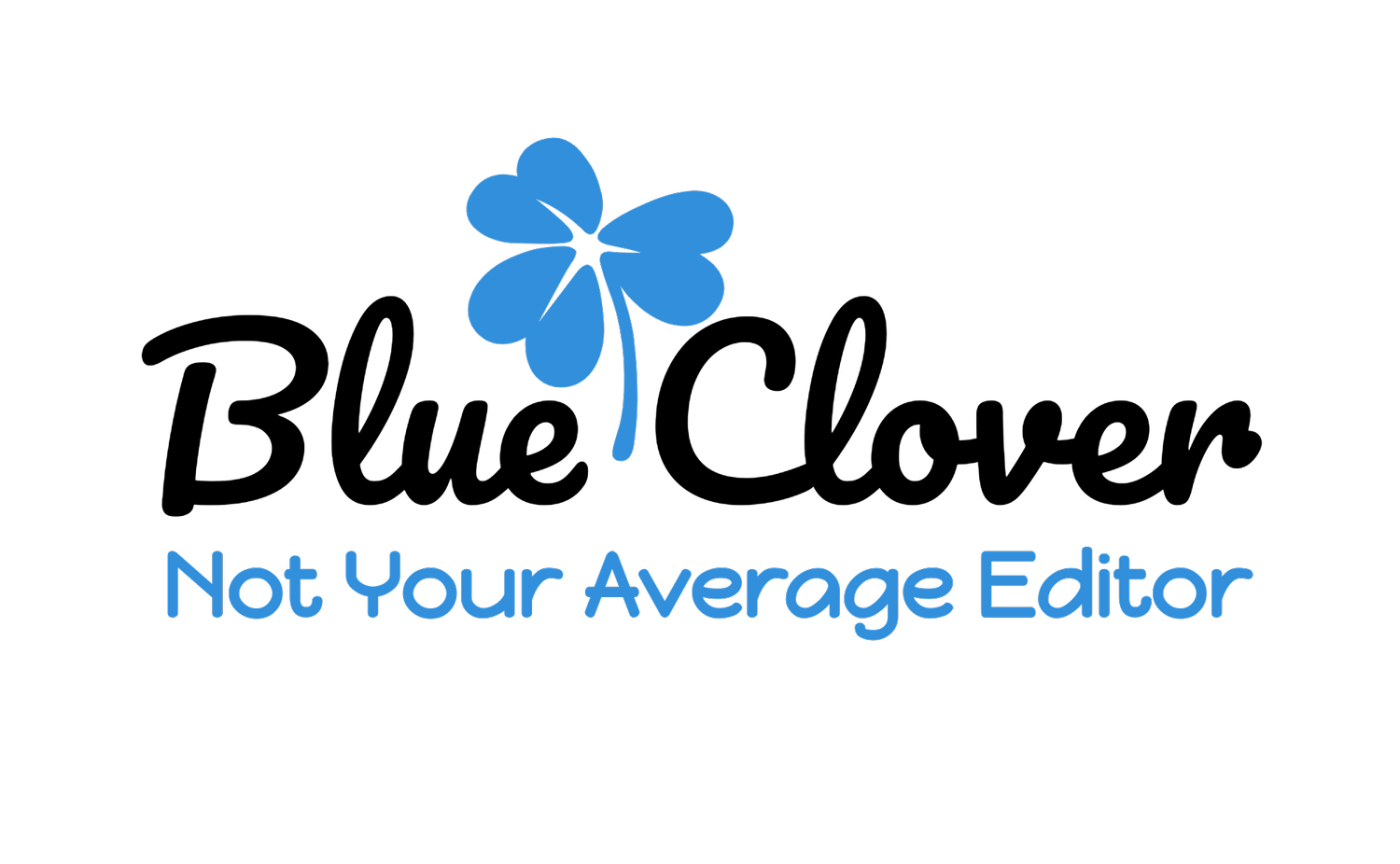-

Manuscript Evaluation
A high-level analysis of the draft focusing on big-picture elements, offering constructive criticism. Will address:
• Plot & Pacing
• Flow
• Themes
• Characterization
• Dialogue
• World Building
-

Line and Copy Editing
Ensures text is clear, readable, and error-free. May involve moving words, sentences, or paragraphs. Edits may include:
• Tone
• Clarity
• Misused Words
• Repetition
• Grammar
-

Beta Reading
A casual, reader-focused review of your manuscript with no changes made. Usually done after copyediting. Comments may address:
• Feeling and Tone
• Characters
• World Building
• Dialogue
• Plot
Your manuscript and writing style are unique and so is the editing process I tailor for you. Prices vary based on the scope and can range from $.015 per word up to $.05 per word, depending on what is needed. Different types of projects require specific types of editing.
What I do for a poetry collection is different from what I do for a novel. And even what I do for a novel can be different based on how developed it is.
Writing is like building a house, and the different kinds of editing are the different stages of the building process. Below are some comparisons to help you figure out where you are and what your project needs.
A book coach assists you in developing your ideas, maybe helps you set up a regular writing schedule. They walk with you as you draw up the blueprints; many will even coach you all the way through publication.
A developmental/structural editor makes sure the foundation is level and the framework is sound. They might tell you to move your rooms around or maybe even add or remove an entire level. They will ensure your plot is solid, your characters have a satisfying arc, and your world is rich.
A manuscript evaluation is similar to a developmental edit, but the evaluator doesn’t walk with you through each step of the build. They come in for a consult, help you know what needs work, and pat you on the back. It’s a high-level evaluation offering constructive criticism.
A line editor is the one who helps with putting up sheetrock and laying the flooring. They might not move whole rooms around, but they’ll tell you if the sink needs to go on the other wall. For your manuscript, they will make sure your dialogue sounds natural, your characters feel real, the pacing is appropriate, and your sentence structure isn’t repetitive. They might suggest moving paragraphs or changing words.
A copy editor comes in to paint the walls, hang the curtains, and move in furniture. They do the nitty gritty of grammar, spelling, commonly misused words, and what most people think of when they think of editing. They’ll make sure the commas are all in right places and no modifiers are left dangling.
A beta read is similar to a manuscript evaluation, but less technical. It’s inviting the realtor over to walk through and tell you how it compares to similar projects, how you can maybe make it stand out just a bit more, and ultimately, how it makes them feel. It is a casual, reader focused evaluation.
A proofreader does all the things right before you invite folks over for dinner. They pick up the dirty laundry, sweep the floor, and wash up the dishes. Their job is closer to formatting than other editing, making sure the page numbers are all correct, there are no extra or missing spaces, the table of contents is correct, and a page doesn’t have only a single word on it. This may be the final pair of eyes before a work is published.
